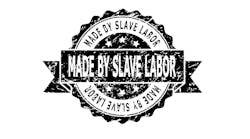The Federal Trade Commission (FTC) has stepped up its involvement in federal regulation of labor relations with a new enforcement pact it signed with the National Labor Relations Board (NLRB) targeting industries that make use of gig workers and other independent contractors.
The memorandum of understanding (MOU) was signed on July 19 and allows the two agencies to share non-public information with each other to “protect workers against unfair methods of competition, unfair or deceptive acts or practices, and unfair labor practices.”
“The agreement is part of a broader FTC initiative to use the agency’s full authority, including enforcement actions and commission rulemaking, to protect workers,” the agency said when announcing the agreement. The MOU declares that both the FTC and NLRB share an interest in protecting American workers and promoting fair competition in labor markets.
The agreement states that the pact is needed “to better root out practices that harm workers in the ‘gig economy’ and other labor markets, to enhance the enforcement of federal laws and regulations administered by the agencies, and to promote interagency collaboration through information sharing, cross-agency training, and coordinated outreach.”
This has been something of a trend among federal agencies since President Biden took office and directed federal agencies to cooperate broadly on issues that would help promote labor unions through an aggressive campaign of labor law enforcement, rulemaking and public education about the rights to organize and to complain about alleged employer abuses.
In April 2021, the President’s staff also assembled a senior level policymaking group called the Task Force on Worker Organizing and Empowerment, which was chaired by Vice President Kamala Harris and Labor Secretary Marty Walsh and made up of other cabinet officers and top White House advisors.
Under the latest interagency agreement, the list of “areas of mutual interest” between the FTC and NLRB that are listed in the MOU provides a rough roadmap to the FTC’s top labor priorities, point out attorneys Gail Levine and Christopher Leach of the Mayer Brown law firm. They are:
• The extent and impact of labor market concentration.
• The imposition of one-sided and restrictive contract provisions, such as noncompete and nondisclosure provisions.
• Labor market developments relating to the “gig economy” and other alternative work arrangements.
• Claims and disclosures about earnings and costs associated with gig and other work.
• The impact of algorithmic decision-making on workers.
• The ability of workers to act collectively on their own behalf.
• The classification, misclassification and treatment of workers.
A Continuing Campaign
The FTC in recent years has focused policy and enforcement resources on labor issues, the attorneys note. Last year, the commission held a joint event with the Department of Justice on “promoting competition in labor markets”—addressing the labor implications of mergers, contractual restraints that may impede mobility, information sharing among employers, and the subject of collective bargaining in the gig economy.
The FTC also intends for its actions to have real teeth, Levine and Leach stress. It has taken steps to increase its ability to obtain monetary relief in connection with deceptive earnings claims. It first intends to issue a “Notice of Penalty Offense” concerning earnings claims (a new approach that the agency has not yet used in an enforcement action), and later by beginning a rulemaking to prohibit deceptive earnings claims.
“Its enforcement has echoed these policy actions, with the agency imposing restrictions on worker noncompete agreements in merger cases and suing well-known gig-economy companies in connection with allegedly deceptive earnings claims,” according to Levine and Leach.
Areas of mutual interest the agencies identified in the MOU include the extent and impact of labor market concentration; the imposition of one-sided and restrictive contract provisions, such as noncompete and nondisclosure provisions; and labor market developments relating to the gig economy and other alternative work arrangements.
Other areas of declared mutual interest are claims and disclosures about earnings and costs associated with gig and other work; the impact of algorithmic decision-making on workers; the ability of workers to act collectively; and the classification and treatment of workers.
The FTC also explained that it has prioritized cracking down on anticompetitive contract terms that put workers at a disadvantage by leaving them unable to negotiate freely over the terms and conditions of their employment. It is scrutinizing whether some of these contract terms—particularly in take-it-or-leave-it contexts—may violate the law.
The agency has heard concerns about noncompete clauses imposed on workers, and opened a docket to solicit comment on the prevalence and effects of contracts that are believed to harm fair competition.
Among the actions already taken by the commission was prohibiting convenience store retailer 7-Eleven from enforcing anticompetitive noncompete agreements in an order remedying competition concerns stemming from the chain’s acquisition of Marathon’s Speedway subsidiary.
The FTC also banned dialysis services provider DaVita Inc. from imposing undue restrictions on worker mobility as part of another commission order designed to remedy competitive concerns raised by DaVita’s proposed acquisition of the University of Utah Health’s dialysis clinics.
Also, among the actions the FTC says it has taken to protect gig workers is its 2021 lawsuit against online retailer Amazon for illegally withholding more than $61 million in tips from drivers who worked in its Amazon Flex program after the company made numerous promises to its drivers claiming that they would receive 100% of their tips.
The commission also sued the ride share company Uber in 2017 for engaging in deceptive claims about earnings to potential drivers and the terms of a vehicle leasing program. Uber agreed to a federal court order requiring it to surrender $20 million, which was then used by the FTC to compensate drivers. Other cases have involved deceptive franchising practices and false promises made by the operators of pyramid sales schemes.
The MOU is a procedural tool and does not itself reflect a shift in the FTC’s policies or enforcement priorities, Levine and Leach claim. But they say companies should take note of the MOU’s “areas of mutual interest,” particularly companies in the gig economy or those contemplating a transaction that would trigger FTC review.
“The FTC appears to have these labor issues front-of-mind, which means company counsel should consider if they should as well,” they recommend.




